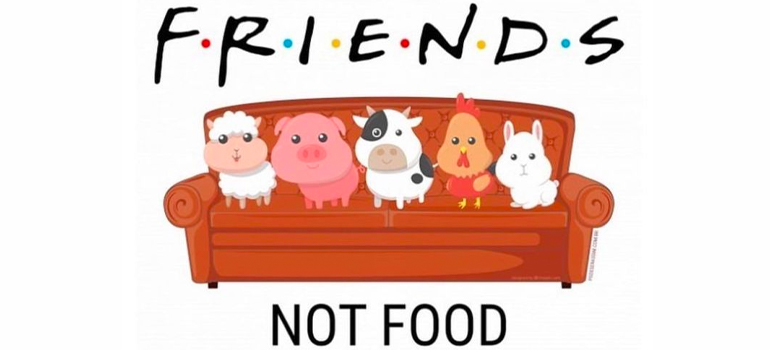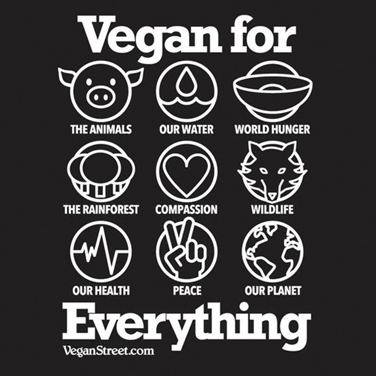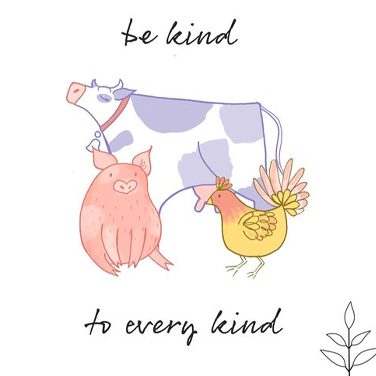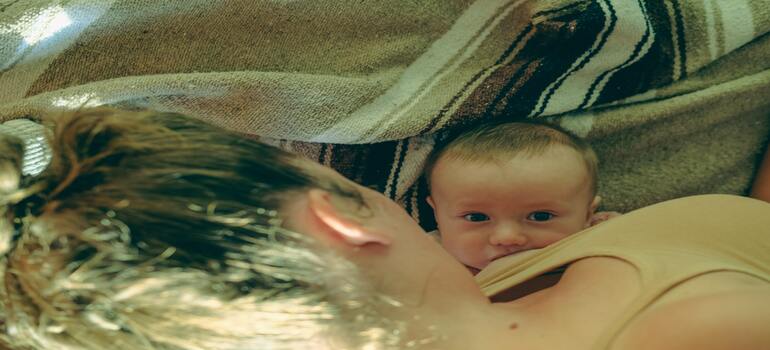Should Your Child's Diet Be Vegan?

- October 10, 2020
- MKB Team
Vegan Diet for Children
It seems like no matter where you turn, which magazine you flip, you will stumble upon the newly written tales of veganism. Everyone is turning vegan or at least talking about it. Is it just because it sounds cool or there is more to it? Is it something you should consider for your baby? We cover it all in this blog! Let’s get you informed!
What exactly is Veganism? Is it same as being vegetarian?
Veganism is a type of vegetarian diet that excludes meat, eggs, dairy products and all other animal-derived ingredients. Many vegans also do not eat foods that are processed using animal products, such as refined white sugar and some wines. So, even though it’s not the same as vegetarianism, but it can be considered as its more aggressive branch.
A single lifestyle switch and too many reasons why turning vegan might be the perfect thing to do. However, raising a vegan child is NOT a no brainer. Nutrition is key to growth, and if not constructed properly, vegan diets can lead to deficiencies. So, it’s best to check with your child’s paediatrician and nutritionist before making the switch to veganism.

Vegan diets for Children
Vegan diets tend to be less energy-dense, so children need to eat larger quantities to get enough energy. We know that children typically have small appetites, so achieving their daily calorie needs can be a challenge. Adding healthy oils to food, such as soya bean or cold-pressed rapeseed are key, as they add more calories to meals and encourage the production of fatty acids, which are needed for brain development.

Vegan Weaning
During weaning, iron-fortified infant rice cereal is a great option for a first food. The cereal can be mixed with expressed breast milk or soy formula for a thin consistency. A variety of foods are to be encouraged when weaning, including vegetables, cereal foods, pulses (peas, beans and lentils), tofu, ground nuts, seeds and fruits. As long as your baby doesn't have an allergy, nuts can be given from six months old, but make sure they are finely grounded. Children under five years old should not have whole nuts because of the risk of choking. Naturally sweet fruits (such as apples or bananas) or vegetables (such as carrots, sweet potatoes or butternut squash) can be used to sweeten foods in place of sugar. Infants shouldn’t consume artificial sweeteners, sugar or salt to foods.
The foundation of your child’s nutrition must be the strongest. So, if you want to go the vegan route for your child, you must steer clear of any nutritional inadequacy that can come with being vegan. Parents, therefore, need to be very well informed, otherwise there's a risk of vitamin D, calcium, iron, omega-3 fatty acids and possibly vitamin B12 deficiency.
Focus on the following nutrients from the age of one if you want to raise your child the vegan way :
Protein
Protein is a key nutrient for growth and development and is essential in every child’s diet. There are plenty of protein-rich foods suitable for a vegan diet, and these include a variety of pulses, beans and lentils which will ensure a good mix of amino acids. Grains such as quinoa as well as nuts and nut butters are good sources of protein, provided your child has no allergies. Aim to include three portions of vegetable protein per day to ensure adequate nutrition.
Calcium and Milk Alternatives
Calcium is key for maintaining healthy bones, and approximately 45% of our bone mass is accrued before the age of eight years. A further 45% is laid in the next eight years, with the remaining 10% in the following 10 years. Calcium requirements are met for children eating a vegan diet.
Soy milk (about 300ml per day) that’s been fortified with calcium and vitamin D is the best choice, and you may wish to include soy yoghurts and calcium-rich cereals in your child's diet too. Oat and coconut milk are another option – they’re both available in a fortified form with calcium (but not vitamin D). Fortified rice milk can be used as a main drink for children from the age of five.
Almonds, calcium-set tofu, beans and green leafy vegetables are also good sources of calcium and should be regularly included in your child’s diet.
Iron
Iron is essential for the formation of red blood cells. Good sources of iron, such as pulses (including beans), lentils and peas, dark green leafy vegetables (like broccoli, okra, watercress or spring greens), wholemeal bread and flour, nuts, whole grains and fortified cereals should regularly be included in their diet. Dried fruits such as apricots, prunes and figs are also good choices.
Vitamin D
Required for absorption of calcium to maintain strong bones and teeth, vitamin D is found in a very limited variety of foods, with the best source being sunlight absorbed by the skin. Dietary sources for vegans are limited, so fortified plant-based milk, spreads and cereals are the best options. The Department of Health recommends that all children between six months and five years take a Vitamin D supplement. The dose will depend on the child’s age. But, not all vitamin D are suitable for vegans, so check the label before you buy.
Omega-3 fatty acids
These essential fats help keep the brain healthy and functioning optimally, but they're also important for vision and heart health. Plant sources include ground chia seeds, flaxseeds, and hemp and ground walnuts. Alternatively, some vegans supplement with omega-3 fatty acids derived from micro-algae.
Vitamin B12
Essential for the formation of red blood cells, vitamin B12 is key for brain and nervous system formation. It’s widely recognised that vitamin B12 is only found naturally in animal sources, but fortified breakfast cereals and some low-salt yeast extracts contain B12, as do fortified plant milks and soya products. A combination must be included in your child’s diet. If not, a B12 supplement may be required for your child’s health.
Fibre
High-fibre foods tend to be very filling and can often cause children to become full before they've got all of the calories and nutrition they need. Opt for nutrient-dense foods that also contain fibre, such as avocados, nuts and dried fruits. Remember its good practice to encourage children to brush their teeth after eating dried fruits to minimise the chance of tooth decay.
To sum it up, vegan diets can be safe for children once parents are well informed about the key nutrients required for growth and development. However, parents must be extra cautious to ensure they're following a balanced diet.
The short answer is yes, with the right planning and knowledge, a child can get everything they need following a vegan diet.
Would you consider raising a vegan child? What is your reason for doing so, tell us in the comments below, and who knows? You might inspire a non-vegan mom to make the switch with your inspiring journey.
Published by
MKB Team
200 Articles
MomsKnowBest is a fast-growing vibrant community of moms, for moms, by moms. Motherhood is complex fun, fulfilling, grueling, exhausting and very complex. There’s no handbook to it. And let’s face it – moms are put...
Read MoreShare with your friends!
Leave a Comment
Trending Post
Myth Buster: Having iron tablets makes your child...
Busting Top 10 Pregnancy Myths about having Iron Tablets
One of the Top 10 pregnancy myths is that...
Health Benefits of Pomelo For Moms To-Be & Kids
During pregnancy, women need proper nutrition to support their health as well as the growth of the...



